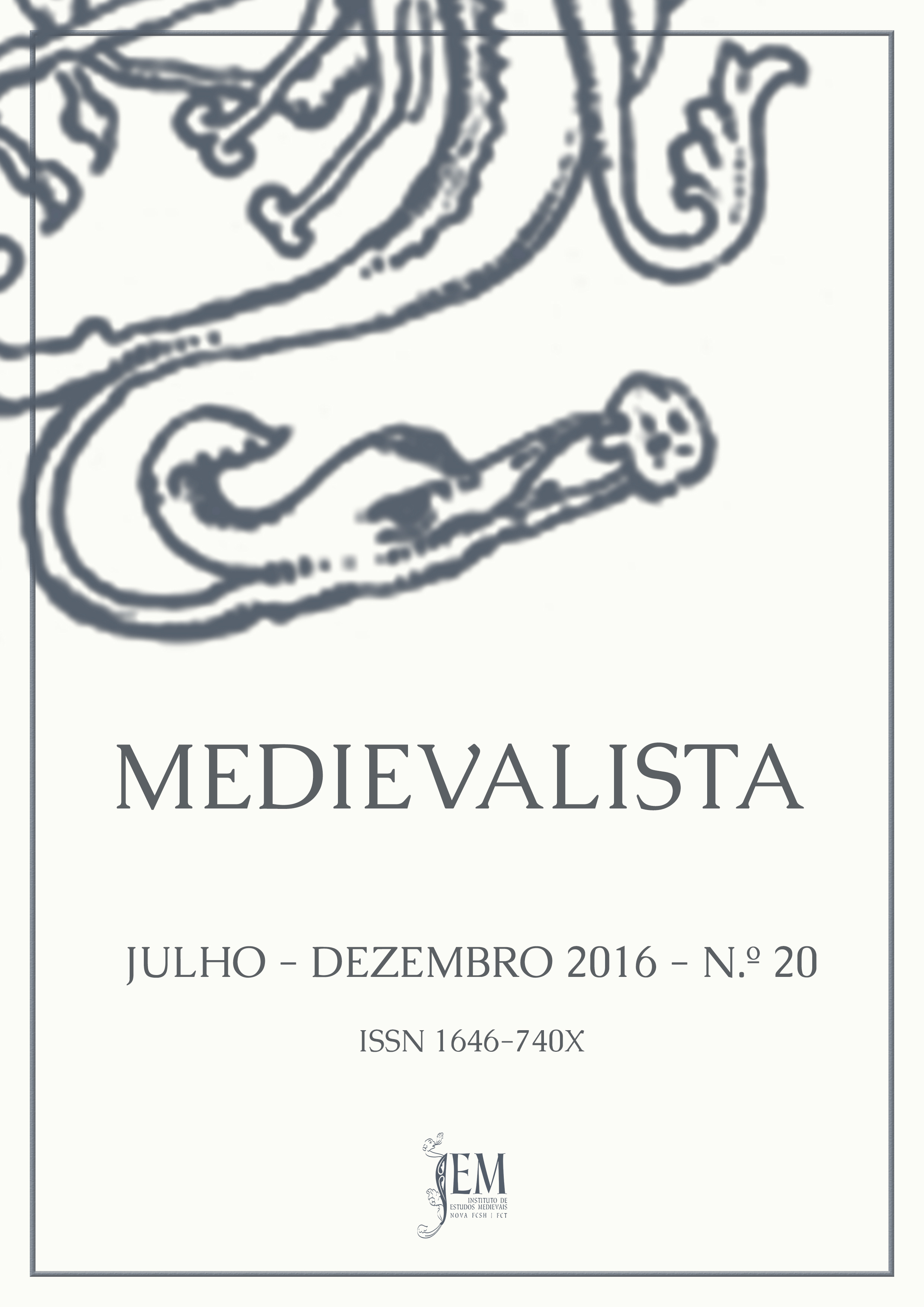Can we find a trace of the Islamic Law in the christian arabe documents of Toledo of the XIIth and XIIIth centuries?
DOI:
https://doi.org/10.4000/medievalista.1168Keywords:
Toledo, Mozarabic Christians, notarial diplomas, Islamic law, Foro VelhoAbstract
During the 12th and 13th centuries, ToledoLs notarial diplomas certify the persistent Arabization of city Christian populations, traditionally designated as Mozarabic. Not only the script and the and the language of those diplomas are effectively Arabic, but also the used formulas, starting by the initial basmala (GodLs invocation), have the origin in the Muslim notarial practice. The featured witnesses are gprofessional witnessesh, and here one is able to find some of the cityfs prominent personalities, who certify have seen and heard both parties establish the contract. That said, the contract celebration is situated in a recent past, and not in the present, as it occurs with the notarial acts form the non-Arab Christian population from the same period. Yet, over and above the formal issues, it is not easy to find a direct influence of the Islamic law in those diplomas. Even an expression of Arab origin as evident as ámarjadraqueâ [mar.ieal-darak] it does not necessarily addresses to any Islamic law rule, as that guarantee was already assured in the Visigothsf law. Also, the clauses of the matrimonial contracts or family shares, are more as per the Fuero Juzgo than the Islamic law. Although the enormous Arab influence in the gMozarabic Christiansh from Toledo, which actually lasted more than two centuries after cityLs Christian conquer, it is not possible to find testimonies that prove the influence of the Islamic law over them.
Downloads
Downloads
Published
How to Cite
Issue
Section
License
Copyright (c) 2025 Medievalista

This work is licensed under a Creative Commons Attribution 4.0 International License.





















